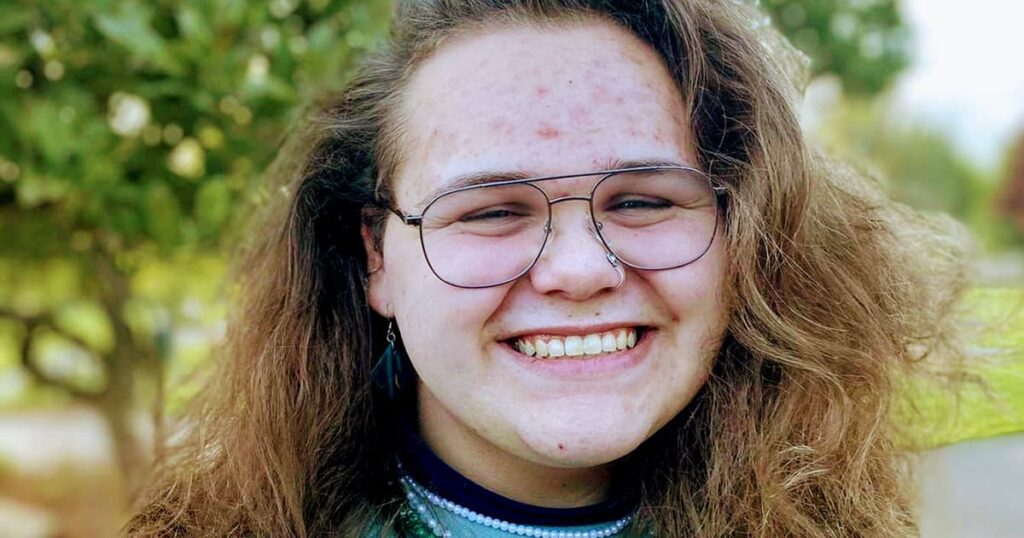
Logan Iverson will receive his bachelor’s degree in human development and family sciences, as well as a bachelor’s degree in psychology, from Oregon State University on June 12. Originally from Banks, Ore., Logan treasures the long-lasting relationships he built with faculty, staff and students during his undergraduate experience.
We asked Logan about his time in the College of Public Health and Human Sciences and his plans for the future.
What inspired you to study HDFS?
I was inspired to major in HDFS because of the focus on interpersonal relationships. Going into college, I wanted to find a major that was related to the humanities, while also having a large focus on working for and with people in my future career, so this major felt like the perfect fit.
What are you most proud of from your time in the CPHHS?
What I am most proud of from my time in the CPHHS would be the relationships that I have built with educators, staff and other students within the college. I spent a lot of time talking with advisors, professors and my peers about my courses and progression, and I was able to make long-lasting connections.
I am also proud of my accomplishments related to my degrees and my ability to maintain some form of work-life balance. I dedicated a large part of my life to school work, taking an average of 19-21 credits each term (including summers) to complete two majors, a minor and an internship in just three years. While studying intensively all year round, I also made sure to spend time with my friends and family, join clubs, volunteer, and work various jobs on and off-campus.
Have you received any scholarships or assistance during your time here?
I received a few scholarships during my time at OSU, one being the Margaret Wolcott Double Scholarship, which encourages student involvement with early childhood development.
What are the most memorable lessons you’ve learned as a student?
The most memorable lesson that I learned as a student would be that reaching out to professors is not as intimidating as it seems. I came from a very small high school where teacher-student relationships were very easy to form. Coming to a much larger institution where meeting and connecting with professors wasn’t automatic was a shock to me. I struggled through terms and hoped that I would figure everything out on my own. I then realized that I would be much more successful if I just asked for help. Most professors are incredibly kind and eager to meet with students. Reaching out to professors, advisors or other faculty and staff at OSU is not intimidating at all, and I wish that I had learned that sooner.
What will you miss the most about the CPHHS, OSU or Corvallis?
After completing my degrees and moving out of Corvallis, I will miss the content and quality of courses offered at OSU the most. I took many wonderful and informative courses here, and I could easily spend more time taking classes that were not included in the MyDegrees plan. The CPHHS offers so many interesting courses, and I wish I had more time to branch outside my major.
What have you learned in the past year?
With nearly half of my college experience happening during the pandemic, I learned that I am incredibly lucky to have certain opportunities available to me and that I was lucky to be able to continue my education through such a challenging time. Working and studying through this pandemic has been eye-opening to the barriers many people face when seeking essential resources from their community. It has taught me that public health systems are essential in ensuring the health and safety of so many, and I am grateful to be a part of such a wonderful field, even at the undergraduate level.
What’s next? What are your plans after graduation?
After graduation, I plan to work in a school setting as an instructor or educational assistant until beginning a master’s program in social work at the University of Alaska Anchorage in May 2022. Ideally, I would like to apply for a dual degree program to obtain a master’s in social work and public health, so I can work with people to improve their interpersonal relationships and communication skills.
How will you create a healthier world?
I would like to create a healthier world through collaborative efforts within communities and at-risk populations, to ensure that their voices are heard and valued when looking for healthy and safe solutions for individual, family or communal success. Addressing social problems at the individual, community and organizational levels can help facilitate positive change.
What does health and well-being mean to you?
I think health can best be described as a state of physical, mental and socioemotional well-being that is not based on the presence of disease or illness. Health and well-being directly affect bodily function and are both important to consider when working with people to improve their quality of life. The promotion of proper health and well-being can facilitate quality physical, socioemotional and cognitive development among individuals and families.
Do you have any advice for incoming students?
Lean into your interests and pursue a degree that involves the things you are passionate about. Your college experience will be more enjoyable if you are invested in the things you learn about. Also, take fun and exciting elective courses unrelated to your major. They act as a great opportunity to explore your interests.